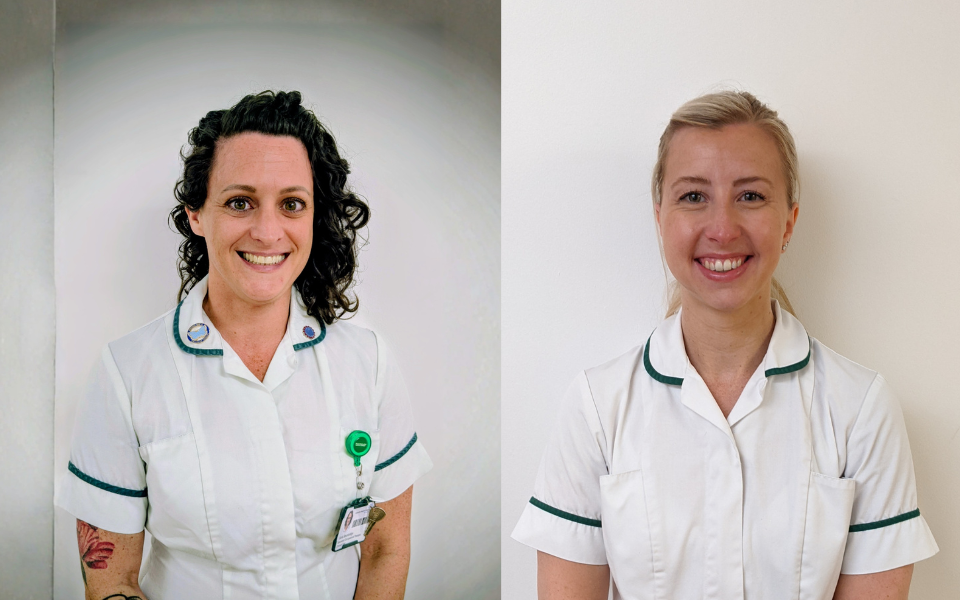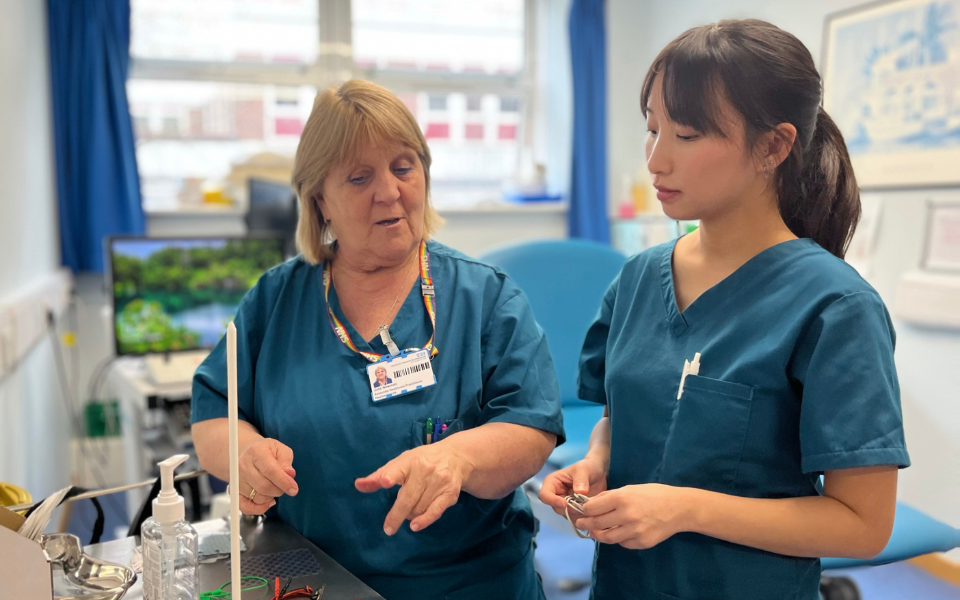
Healthcare science
The Science of the Brain: Ava’s Contribution to Patient Care at UHS
Meet Ava, a Trainee Healthcare Practitioner specialising in clinical neurophysiology at UHS
Can you tell us about your role and how it helps improve patient care and UHS?
I am a trainee healthcare science practitioner specialising in clinical neurophysiology – an allied speciality to neurology and neurosciences. We focus on assessing the electrical activity in the brain, spinal cord, and peripheral nerves to diagnose neurological disorders. We use techniques like electroencephalography (EEG) to diagnose epilepsy and monitor brain activity during seizures, nerve conduction studies to identify peripheral nerve issues, and evoked potentials to assess the sensory pathways, especially in conditions like multiple sclerosis.
At UHS, our team of clinical scientists run these tests and analyse the data while our consultant clinical scientists interpret the results. These tests help neurologists and other specialists make accurate diagnoses. We work closely with other tests like neuroimaging to get a broader clinical picture, allowing us to provide comprehensive care for our patients.
How would you explain healthcare science to someone new, and its importance to healthcare?
Healthcare science uses various skills from science, engineering, and technology to diagnose, prevent, and treat diseases. With more than 50 different specialities, we collectively form the scientific foundation of the NHS, supporting 80% of all diagnoses.
What personal qualities do you think are crucial for success in healthcare science at UHS?
In the healthcare field, having a genuine passion for the work and care for patients is essential. Healthcare science involves collaboration across different disciplines. Strong teamwork and communication skills enable us to work efficiently with diverse teams, making the most of each other’s expertise to achieve common goals.
What kind of qualifications or background do people need to pursue a career in healthcare science/your field?
In healthcare science, there are lots of ways to get trained and educated. You could jump straight into working as a healthcare science assistant or you could pursue a degree in healthcare science. The Practitioner Training Programme takes three years, incorporating academic study and on-the-job training. By the end of it, you’ll be certified as a healthcare science practitioner. Applicants are expected to have three A-levels (or equivalent qualifications) with two science subjects, along with supporting GCSEs. Or, if you’ve already got a relevant bachelor’s degree, you could go for the Science Training Programme at the master’s level to become a clinical scientist.
Are there any upcoming developments in your department that excite you?
We’ve recently resumed doing intracranial EEG after pausing during COVID-19. It is used to locate the cause of seizures in diagnosing epilepsy and planning for surgery. The neurosurgeons put electrodes inside the skull to record brain activity directly. These test results help them pinpoint and remove brain tissue causing seizures, all while making sure important functions like speech and movement are kept intact.
How does your team boost morale and lend support at work? Any unique approaches your team offers support?
Our department is quite social, and we’ve bonded as colleagues. We often grab lunch or drinks together outside of work, especially during holidays like Christmas. At work, we have regular department meetings where everyone can voice their concerns. It can get tricky sometimes dealing with paediatric patients or those who aren’t too keen on the tests, but we’re always there to support each other in these situations.
And when we get donations from charities, it really boosts our team’s morale. It’s something that brings us all a lot of happiness and motivation.
For aspiring healthcare scientists, what advice would you offer?
Getting hands-on experience in clinical settings through volunteering or working in healthcare facilities can be really helpful. These opportunities offer valuable insights into how patient care and healthcare delivery work in real life.
It is also important to work on soft skills like teamwork, communication, and organisation to succeed in this field.
Related Blogs
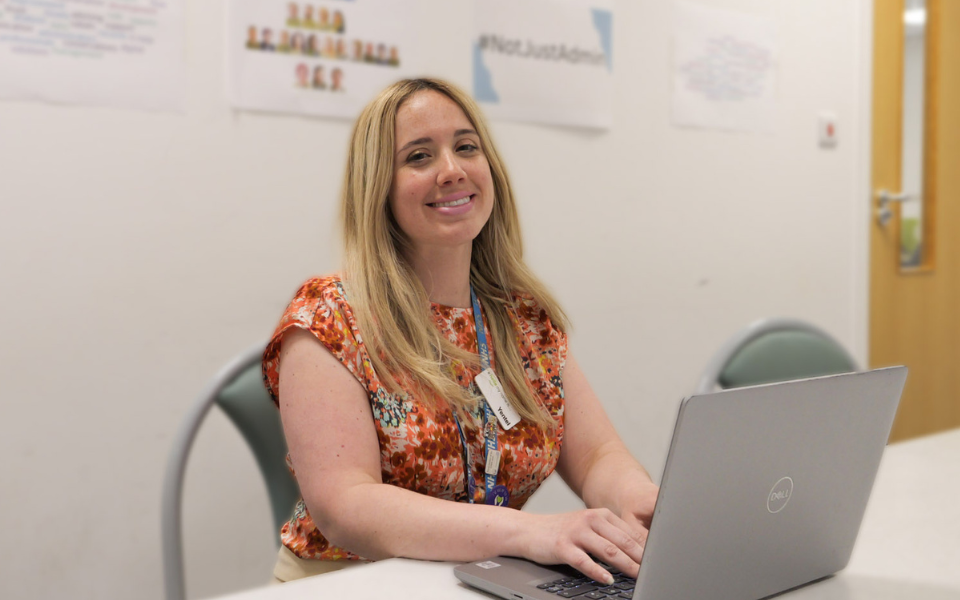
From Sports Coach to NHS Innovator: How Yentel Found Purpose at UHS
More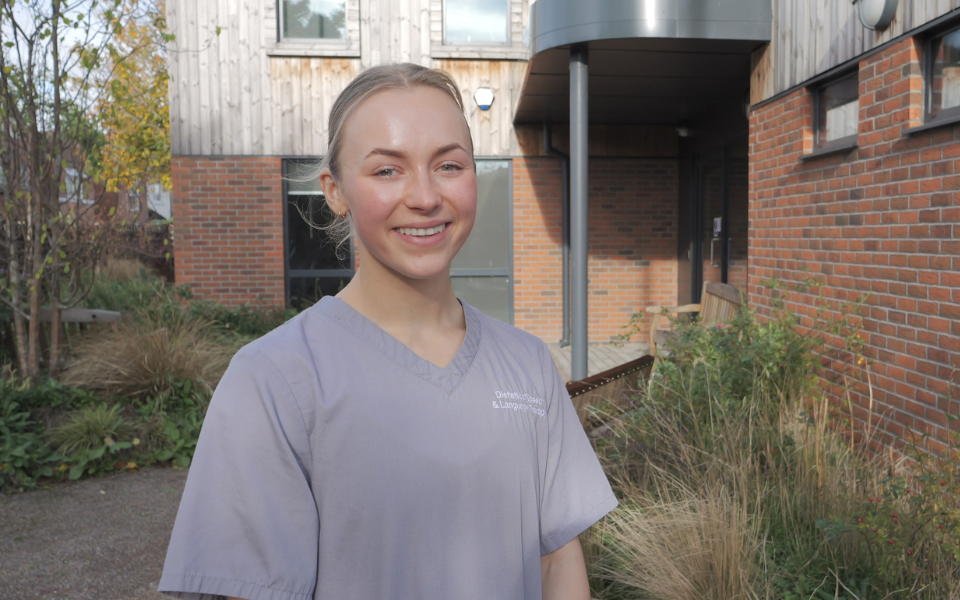
Supporting Newly Qualified Professionals: The Impact of Preceptorship at UHS – Goda’s Story
More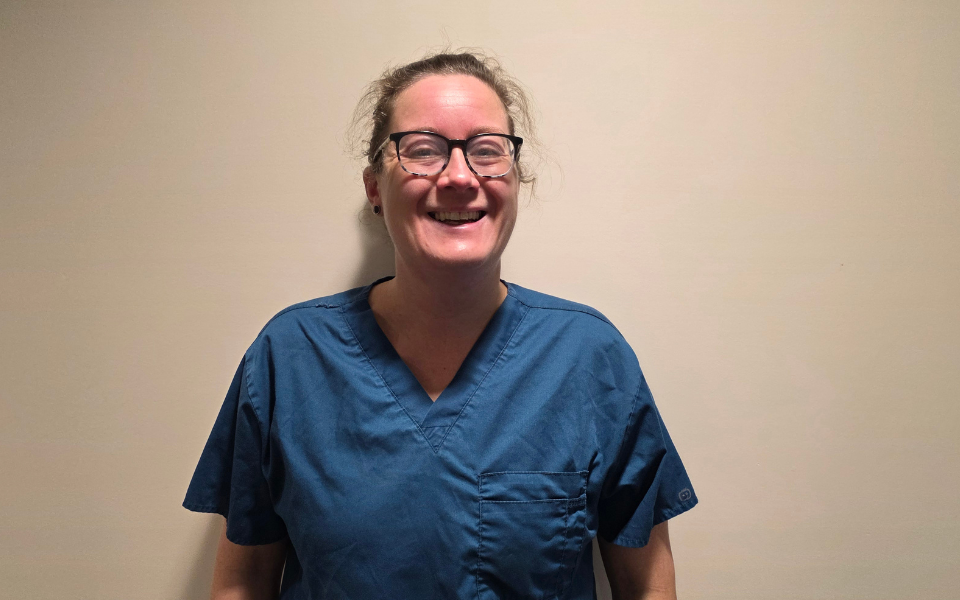
From Childhood Dream to NHS Specialist: Lizzi’s Journey in Pharmacy
More